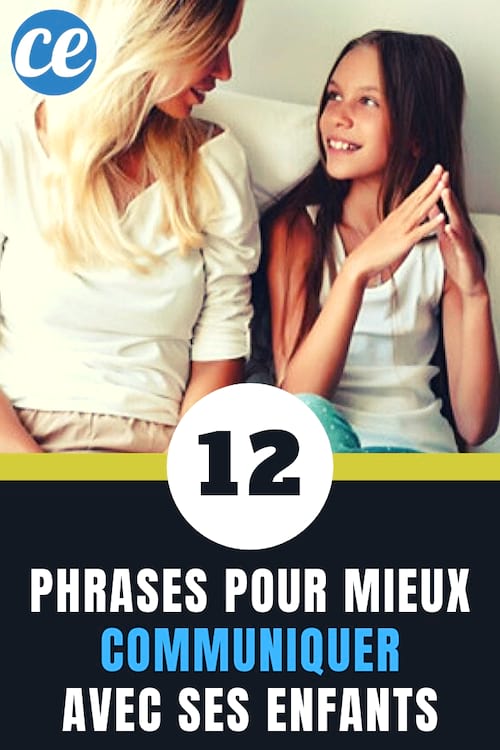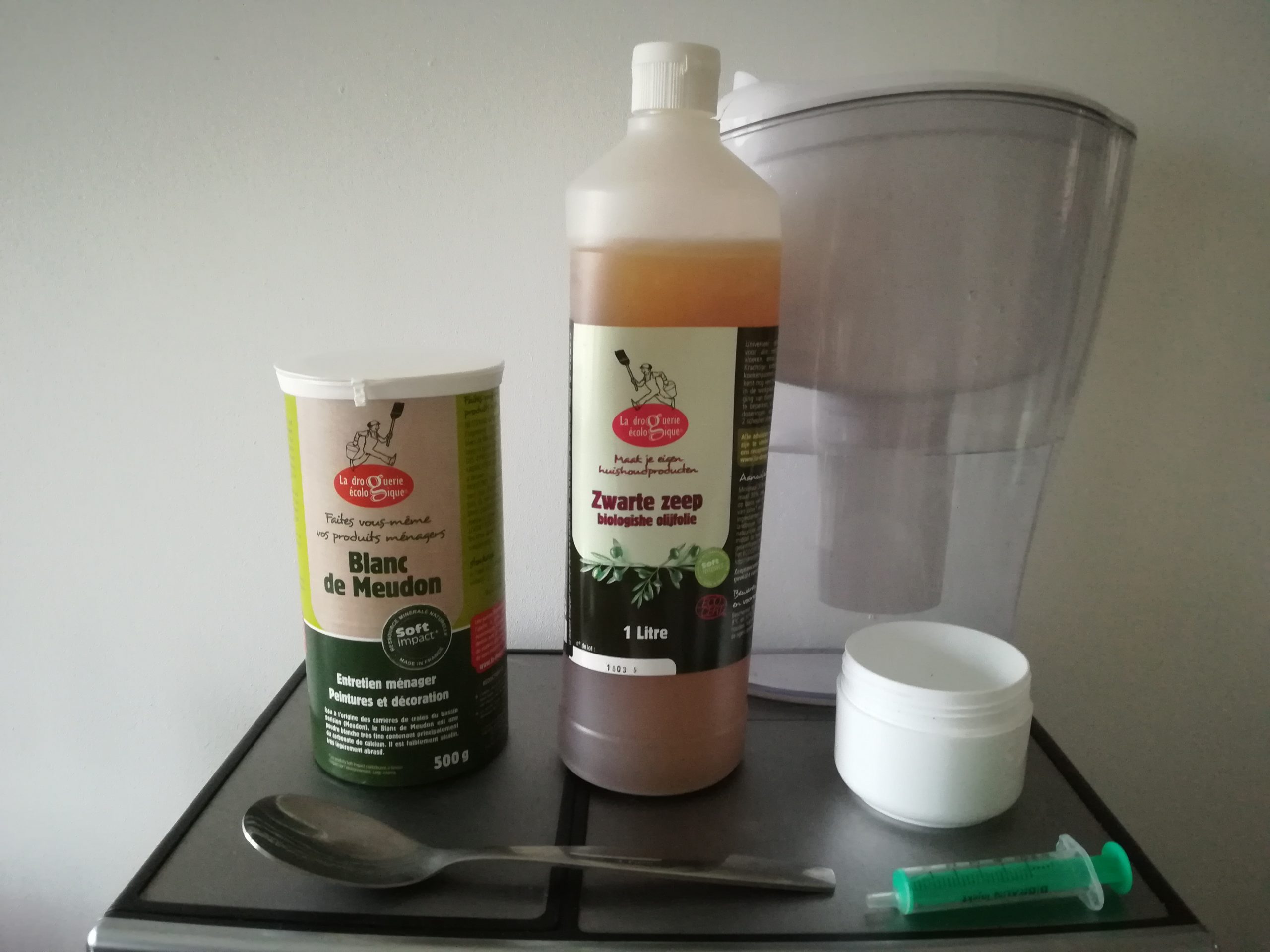12 Powerful Phrases To Talk To Your Children Easier.
Talking with your children is not always easy ...
They have ideas on everything and endless stories.
They see the world with a completely different perspective from ours.
All the questions they have would be enough to occupy an entire afternoon.
And finding the right words to communicate with them is a real challenge.

Also, in complicated situations, you can quickly feel overwhelmed and have trouble staying calm.
You feel under pressure, you can't find your words and it becomes difficult to hide your exasperation.
Everything that comes out of our mouth is a sound halfway between a growl and a sigh ...
Fortunately, there are simple and effective sentences to facilitate communication with your children on a daily basis and thus avoid arguments.
here is 12 powerful phrases to talk more easily with your children. Look :

1. "For all that ..."
A "but" can aggravate an already tense discussion.
In addition to erasing anything positive that has been said before, a simple "but" can hurt and confuse.
Saying "I love you but ..." or "I'm sorry but ..." is often understood as "I love you but not enough" or "I am sorry but not really".
Instead, replace "but" with "provided ...".
It gives weight to what you said just before, but also to what you are going to say afterwards.
Examples:
"I love you. However, I cannot let you be vulgar."
"I'm sorry you're angry. However, I don't admit that you hit your comrades."
2. “I ask you to… / You must…”
One of the best ways to create a balance of power is to give the children the choice.
As with this type of question: "Are you ready to sit down to dinner?"
or "Can we go get dressed now?" or "Would you like to pick up your toys?"
These formulas are only perfect if you want to give your child the choice.
Otherwise, you must formulate your request more clearly by ending with "please".
Examples:
"It's time to sit down to dinner, you have to come and eat, please."
"I'm asking you to go get dressed, please."
"You have to pick up your toys, please."
3. "I can see ..."
"I can see you both want the same toy."
"I can see that you are very angry…"
In the event of a problem, the best is to simply observe the situation. Thus, you avoid accusing the child or making assumptions.
On the contrary, you show that you are trying to understand what is going on.
In this way, everyone is much more willing to find a solution to the problem.
To make it work, just start by describing what you see, without being judgmental.
Then invite your child to finish your sentence to find out what happened.
4. "Describe me…"
As with point number 3, the main thing is not to jump to conclusions too quickly.
Instead, let your child express himself first.
This formula works just as well in an argument as it does in a situation where you are trying to guess what your child has drawn.
"Describe to me what you drew ..." works better than saying "What a cute bear!" (especially if the child has actually drawn a dog).
"Describe to me what happened ..." is much more effective than "I can't believe you hit him!" (especially if before that, the other child taunted him for 2 hours).
5. "I like looking at you…"
This formula is ideal for getting out of difficult times.
It comes to me from my grandmother. I have practiced it thousands of times.
Telling a child that you care and enjoy watching them every day can really help them develop good self-esteem.
The best way to encourage a child to behave is to point out his good deeds and qualities.
Examples:
"I like watching you play with your brothers."
"I love listening to you play the piano."
"I like watching you play Legos."
It is a simple and effective formula which shows the child that we are attentive to him.
It also reminds us to slow down to take advantage of the present moment.
6. "What do you think you could do to…"
On a daily basis, we tend to want to immediately resolve any problem that arises.
But in fact, it is important to empower children and teach them to solve them on their own.
Examples:
"What do you think you could do to cheer your sister up?"
"What do you think you could do to reconcile with your friend?"
"What do you think you could do to fix what you broke?"
This type of sentence encourages children to take initiatives on their own and not just offer them a ready-made solution.
Hence the importance of TON and TU in the sentence: "In YOUR opinion, what could YOU do…."
7. "How can I help you…"
In some situations, it is clear that the children need our help.
At this point, what is important is to give them a hand, but not to immediately come to their aid.
The objective is to show them that we are there to help them if necessary, without removing their responsibility.
Examples:
"How can I help you fix this broken toy?"
"How can I help you tidy up your room?"
"How can I help you with your homework?"
8. "What I know is…"
In some cases, we KNOW full well that our children take us by boat.
If we tell them straight away “You're lying to me!”, They will close in on themselves or be on the defensive.
You can avoid an argument by simply saying what you know.
And it works just as well when faced with a lie as with a big misunderstanding.
Examples:
"What I do know is that there were 4 cookies on the plate when I left."
"What I do know is that toys can't move around on their own."
"What I do know is Laura's mom wasn't home today."
9. "Help me understand…"
Asking a child to help you understand a situation is much less accusatory than saying "explain yourself".
You are giving him the message that you don't understand, but WANT to understand.
Examples:
"Help me figure out how it ended up here."
"Help me understand what happened."
10. "I'm sorry…"
Children aren't always the only ones who make mistakes. Adults and parents too!
Recognizing your own mistakes and clumsiness is also giving your child the opportunity to learn that it is always better to admit mistakes than to deny.
But not only.
He is also taught that everyone makes mistakes.
When a child sees us admit our mistakes and apologize, he immediately understands that he can do the same.
And when you know how to reconcile quickly, it makes relationships even stronger.
11. "Thank you…"
In everyday life, it is important to give as much importance to the good times as to the most difficult.
This means, for example, highlighting the great times that exist even on really difficult days.
Indeed, our children need to know that their efforts do not go unnoticed.
It's like when we ourselves expect a little recognition after working hard on a professional project.
Examples:
"Thanks for packing up your snack this morning."
"Thank you for listening so kindly to what I had to say to you."
"Thanks for helping your sister."
Even: "Thanks for tidying up your room. I know you wanted to do something else first. (Implied: since you had a fit just before). It makes me really happy that you gave yourself of grief. "
12. "I love you…"
It is essential to remember these three words and not to hesitate to say them often.
Our words and actions must show our children that they will ALWAYS be loved, no matter what.
In all the studies on child development that I have read, there are 2 truths that keep coming up:
1. First and foremost, it is human relationships that promote children's learning and development.
2. Loving unconditionally is the basis of all healthy human relationships, especially between members of the same family.
Before, during and after the most complicated situations, we should tell our children that they will always be loved and safe with us, no matter what.
Showing love can make up for any mistakes parents make (because yes, no one is perfect!).
And this, even when we can't find the right words or we don't communicate as we should.
When you clearly show your love for your child and he grows up surrounded by caring, we always manage to find a way to be reconciled.
Do you like this trick ? Share it with your friends on Facebook.
Also to discover:
30 Questions to Ask Your Child Instead of "How was your day?"
8 Things To Tell Your Children To Make Them Happy.










